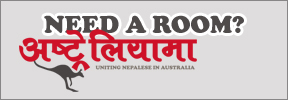How to make a good resume
Jan 23, 2017 under How to(s), DIY , Education and Reference , Tips and Tricks
On average, a hiring manager or recruiter will spend an estimated six seconds reading a job seeker's resume. As you can imagine, that's not a whole lot of time to let a business know why you're the perfect candidate for the job. You may be thinking, 'What can someone possibly learn about a person in six seconds'? This short time is spent looking at your name, current title and company and your skills and experience. If you're not jumping off the page, your resume jumps in the recycling bin. Here are ten things you need to know and include in your resume to help you get that job:
- Clear and concise format
Don't let pictures or colorful fonts distract someone (or turn someone off) from reading your resume. Your name should be the first thing a recruiter sees followed by your contact details. Make use of dot points to ensure that you are writing to the point. Font should be Arial or New Times Roman, a readable size (11, 12) and black.
- Logical order of information
Start with your main details '“ name, address, phone number and email and then progress to outlining your previous education (only High School or above), past employment history or work experience, accomplishments, volunteer work and then, references. Of course, each resume will be structured slightly differently depending on the person, for example, someone's accomplishments may be more important and relevant than their previous work history so use your common sense and make the appropriate judgment.
- Make sure your contact details are updated
There's nothing worse for an employer to call someone for an interview and realize the number is incorrect or have an email bounce back. If there are a number of good candidates, they will move on and won't retry.
- Include previous job experience with specific examples
Don't simply list your previous employment. Make sure you include the time frame for which you worked at the business, your main roles and duties and any specific examples of what you achieved or projects which you worked on. Numbers work best in this section for example, 'Effectively implemented a new online system for highlighting potential customers which resulted in a 50 per cent increase in sales'?.
- References
Make sure you inform your referees before applying for the position that you have used them in your resume. Also, don't feel obliged to add a referee if they are not completely relevant to the position you are applying for.
- What else have you done?
Many individuals like to include their interests at the end of their resume. Whilst many employers like this, some interests are completely irrelevant and don't add value to your resume. 'Shopping' or 'watching the TV' should not be included on your reference. Things such as 'Member of the Council of Small Business Australia' or 'Red cross community service' should be included.
- Length of resume
One page is ideal (two pages absolute maximum). This isn't a lot of space but if you're being specific and to the point, that's all you will need.
- Spell check
Por favor, PLEASE get someone to read over your resume and make sure that you have used spell check beforesending off your application.
- Different resume versions for different jobs
As already mentioned, different jobs and industries will require different types of resumes. This does not concern the layout of the resume, it should still be clear and concise, but what information included will vary depending on the job description.
- Read the job description before applying
Read the job description very carefully before applying to avoid wasting your time, and a businesses' time. If the job requires an individual with extensive experience in teaching primary school children in math, don't apply unless you have this experience.


